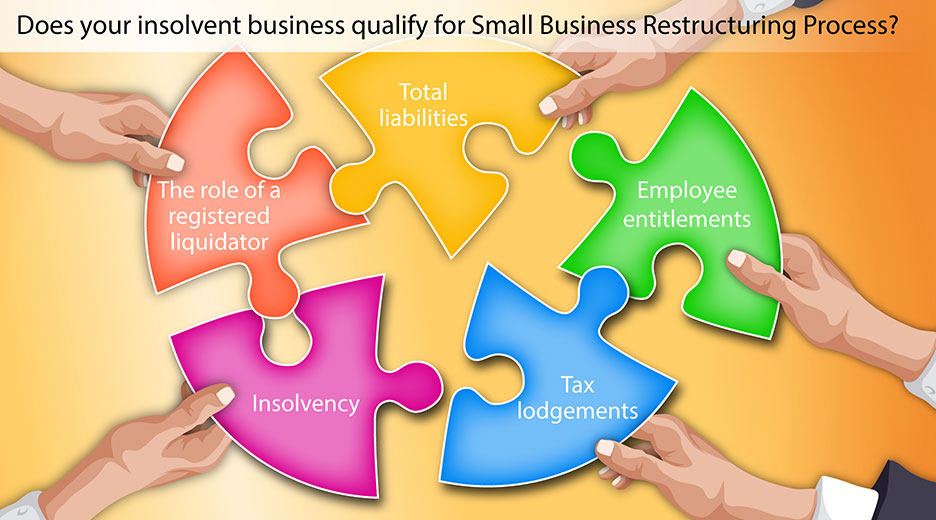Does your insolvent business qualify for the Small Business Restructuring Process?
2021 introduced sweeping changes to Australia’s corporate insolvency laws with the introduction of the Small Business Restructuring Process (SBRP) under Part 5.3B of the Corporations Act. This innovative restructuring process aims to give struggling small businesses a lifeline by enabling them to restructure their debts and bounce back more resiliently whilst leaving directors in control of their own business. This blog post explores the key hurdles to qualification for restructuring under the SBRP.

The $1 Million Total Liabilities Test
The first hurdle to qualify for the SBRP is the total liabilities test. To be eligible for an SBRP, your company must have total liabilities of less than $1 million. This includes secured and unsecured debts, as well as employee entitlements, and contingent liabilities. The million-dollar liability limit encourages small businesses to take advantage of the process, providing them with an option to restructure their debts and avoid liquidation. Under this definition over 95% of businesses should qualify for SBRP.
The technical definition of “liability” includes any “admissible debt or claim”. This is quite broad and includes all liabilities that are admissible in a winding up. Under section 553 of the Corporation Act these liabilities extend to: all debts payable by, and all claims against, the company (present or future, certain or contingent, ascertained or sounding only in damages). For example, a contingent claim is a potential claim that may occur in the future.
Insolvency Test
Secondly, to be eligible for the SBRP, your company must either be insolvent or likely to become insolvent. In other words, your company must be unable to pay its debts as they fall due or it projects that it will soon become unable to meet its obligations. This requirement is a key aspect of the SBRP, ensuring that the process is available only to companies in real need of financial restructuring.
Compliance with Employee Entitlements and Tax Lodgements
The third criterion places emphasis on employee entitlements and tax lodgements. It is important to note that this isn’t the same as payment obligations like general expenses or the unsecured debts that your business is struggling to pay.
To meet this eligibility requirement, your business must be up-to-date with paying employee wages, superannuation, and other entitlements, and be substantially compliant with all tax lodgements such as income tax returns and business activity statements. This eligibility checkpoint exists to ensure businesses are taking care of their employees and tax obligations before they can seek assistance under the SBRP. It also has the practical effect that businesses need to have their accounting data entry up-to-date before they can consider an SBRP.
Prior Engagement in Restructuring Processes
The fourth requirement focuses on the company’s and its directors’ past engagements in restructuring processes. Specifically, neither the insolvent company nor any of its directors (currently or in the previous 12 months) should have engaged in the small business restructuring process or undertaken a simplified liquidation in the last 7 years. This condition is implemented to prevent the reuse of the SBRP and simplified liquidation process.
No Concurrent Restructuring or Administration
Lastly, the company should not be under any other restructuring or administration process. This means your company should not be subject to a Deed of Company Arrangement or in the process of liquidation when applying for the SBRP. This requirement ensures that the SBRP is not used in conjunction with other insolvency procedures.
The Role of a Registered Liquidator
Beyond the business qualifications, a crucial requirement to access the simplified debt restructuring process is that you work with a registered liquidator. Only a registered liquidator can assist with the SBRP. The role of the restructuring practitioner in the SBRP is fundamental – they help the company prepare the restructuring plan, make reasonable inquiries about the company’s business, property, affairs and financial circumstances, and form an opinion about whether the company has met the eligibility criteria and whether the plan is feasible and in the best interests of the creditors.